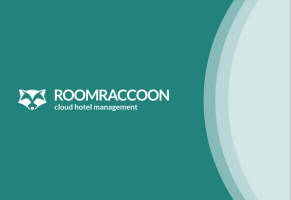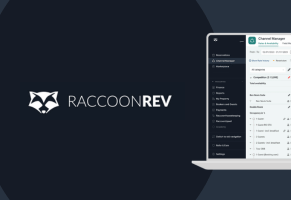CORE PRODUCT
Unpacking Hotel Metasearch Engines: RoomRaccoon’s Guide
October 31, 2023 Layla. M
Share this post

Hotel metasearch engines are a useful digital distribution tool and a channel that should not be underestimated. We’re in the age of instant search, where answers and products are simply a click away. Travelers can find the holiday of their dreams with just a few keywords. And it’s easier than ever to grant your hotel online access to a variety of metasearch engines.
While the term ‘metasearch engine’ may sound highly technical, setting up this channel can be quick and easy with a property management system. An integrated channel manager will make managing your distribution strategy a breeze. You can also connect your booking engine as a distribution channel to ensure maximum online visibility for your hotel.
What is a Metasearch Engine?
Hotel metasearch engines are like online assistants for finding the best hotel deals. They send your hotel search to different places they team up with, like hotel websites and online travel agencies (OTAs). While OTAs and metasearch engines can seem like the same thing, there is an essential distinction between the two.
In the world of online hotel bookings, we encounter two different business models: metasearch engines and OTAs. Surprisingly, both of these players share a common goal – boosting your online presence and driving bookings. Metasearch engines, in particular, offer an enticing advantage for hoteliers.
They are a cost-effective tool for brand promotion, steering clear of the high commission rates often associated with OTAs. The secret weapon? A dynamic pay-per-click model that keeps your expenses in check while expanding your reach. And this is not the only “pay per…” model that metasearch channels embrace.
Hotel metasearch engines provide a range of cost models to accommodate the ever-changing needs of hotels and advertisers. These models can significantly impact your hotel’s advertising budget and the results you achieve. The first and most common cost model is Cost Per Click (CPC), where you pay for each click on your ad. CPC is an effective way of generating high visibility. However, with click-happy travelers, it can get expensive.
Then there’s Cost Per Impression (CPI), where you pay based on how many times your ad is shown. This model is great for raising brand awareness and creating hype. A reliable cost model is Cost Per Action (CPA), which involves paying only when a specific action, like a booking, occurs due to your ad.
Finally, there’s Pay Per Stay (PPS), a commission-based model where you pay a percentage when a guest completes their stay. Choosing the suitable cost model depends on your goals and budget, so it’s essential to understand the pros and cons of each to make an informed decision.
How do Metasearch Engines Work?
Now that we’ve covered the basics of cost models, we can get into the details of how hotel search engine aggregators work! Hotel metasearch engines play a pivotal role in simplifying the process of finding the perfect place to stay. What sets them apart is their ability to fetch real-time information on a hotel’s availability, rates, and inventory (ARI) and then neatly organize it all into a neatly ranked list.
What does a metasearch engine do? It aggregates and presents lodging options from various sources that earned the metasearch engines the title of “hotel aggregators.” So, whether you’re a traveler in search of the ideal stay or a hotelier looking to boost your visibility, these metasearch engines are the go-to tools for simplifying the process and making informed choices.
A differentiating factor for metasearch engines is that visibility is boosted, and direct booking is favored. Metasearch engines redirect to your hotel’s booking engine. This means more revenue with less spent on advertising – the reservation will stay 100% commission-free. Just make sure your website has an easy-to-use booking system in place to handle these bookings effectively.
How to Optimise Your Content for Metasearch Engines
Hotel metasearch engines help to place your hotel and summarise its most important selling points to your prospective guests. So it’s up to you – what do you want to communicate? Think of your content for metasearch engines as an elevator pitch for your property. Why should guests book a stay, and what will keep them coming back for more? Let’s start with what travel engines usually include.
Key summary content used by Metasearch engines:
- Property name
- Customer rating/review
- Property hero image
- Amenities/stand-out features
The above formula is utilized by Google Hotel Ads, with other Metasearch engines following a similar structure. So, let’s jump in and discuss how to make the best of your summary card that travel search engines will display.
How to optimize your content:
Property name
It should go without saying, but be sure to double-check the spelling of your property name. Ensure that any special characters, capitalization, and punctuation are present. This enables travelers to find your hotel easily and book with confidence.
Customer rating/review
This next aspect requires more time and dedication than setting up your property’s name. Cultivating a solid property reputation can take months or even years. But the sooner you start sowing the seeds, the sooner you can reap the rewards.
We recommend using hotel management software to elevate the guest experience. Looking for inspiration? We have a great blog on 5 simple steps to optimize the guest experience. You can always start simply by introducing time-saving technology, such as online check-in and online check-out.
Property hero image
Your property is a sight to behold – and so should its hero image! We recommend using a photograph that captures the unique essence of your property. Or you could use a photo that highlights an integral experience at your hotel.
Remember to use an up-to-date and high-quality image. Your property needs to stand out while it squares up against similar offerings. Give your hotel the upper hand with an irresistible hotel hero image.
Amenities / stand-out features
As a property owner, it can be hard to play favorites. But we advise using a discerning eye when picking stand-out features. Remember to highlight what makes your hotel unique. Another top tip? Think about seasonality. In summer, you’ll want to highlight your pool, whereas in winter, guests may be more interested in the spa facilities.
In closing, treat your property details for metasearch engines like a mini-billboard. Take the extra time to ensure that your content is extra special. If you wouldn’t have your hero image printed on a billboard, why would you have it presented to thousands of travelers online?
4 Different Types of Hotel Metasearch Engines
Hotel metasearch engines are an essential part of developing your hotel distribution strategy. The right peppering of channels can help get your hotel in front of the right people. Using a hotel metasearch engine, you’re reaching more travelers and ensuring direct bookings – what’s not to love?
We will review some exciting travel engine statistics to help you understand the reach of metasearch. We’ll also be covering the different cost models that apply to each channel. Welcome to your metasearch engine mini guide!
Metasearch engines overview
- Google Hotel Ads
- TripAdvisor
- Trivago
- Skyscanner
Google Hotel Ads
Google Hotel Ads, or GHA, is a helpful online distribution tool from Google. It helps people who want to find the right hotels and make reservations. What’s great about GHA is that it lets your hotel compete directly with big travel websites like Booking.com, Expedia, and Airbnb.
The customer reach of Google Hotel Ads is 64%-80% market share and offers different pricing models. You can choose between CPC, CPA, and PPS (pay-per-stay). GHA is fully integrated with RoomRaccoon’s hotel booking software.
It’s crucial to remember that bookings from GHA come with a significantly reduced commission rate and better hotel visibility, making it a financially savvy choice for your hotel in the long run. You can learn more about the integration here.
TripAdvisor
TripAdvisor is one of the world’s biggest travel platforms. This service is available in 49 markets and 28 languages, showing its incredible reach. TripAdvisor serves restaurants and attractions in addition to properties. This affords the channel a diverse online audience and immense reach across the world.
The customer reach of Trivago is a staggering 500 million monthly users. With cost models ranging from CPC to CPA to PPS, you’re spoilt for choice on your cost strategy. With RoomRaccoon, integrating with TripAdvisor is quick and easy!
Trivago
Trivago helps to compile and aggregate hotel prices for over 190 different countries. This handy website has over 175 million aggregated hotel ratings that allow you to learn more about the place and space you travel to. With a sole focus on hotels, your online audience has one thing in mind – booking a stay!
Trivago has a customer reach of more than 120 million monthly users. That’s a fair amount of eyeballs that could be looking at your hotel! You can also choose between CPC or CPA cost models when using this service. You can connect our hotel reservation software to Trivago through an API or connectivity partner.
Skyscanner
Skyscanner is a metasearch engine that covers flights, hotels, and car rentals. While their primary focus is on flights, this company’s vision is to make the entire travel experience seamless. That’s why they’ve compiled three of the most critical tasks of booking a holiday on one website. Think of Skyscanner as your one-stop travel shop.
The customer reach of Skyscanner is a large 100 million monthly users. Your hotel or property is guaranteed to get some great business with that high number of active users. You can connect RoomRaccoon with Skyscanner through a connectivity partner quickly and easily.
Benefits of Hotel Metasearch Engines
With a metasearch engine, you can guide users to book directly. This allows your property to own the guest experience and provide a seamless user journey. Now is the time to take advantage of metasearch engines and everything they offer. Let’s go over some of the benefits of using hotel metasearch engines.
Offer Direct Discount
Are you looking to increase your direct bookings? Nothing works better than direct booking discounts. Since metasearch engines compile and display prices, your direct booking will be the most cost-efficient option. This means more bookings for your property and no commission cost on those direct reservations.
Increase Visibility
It goes without saying that metasearch engines like Google Hotel Ads and Tripadvisor will get your property in front of 100s of millions of internet users. You may even attract first-time guests with your newly optimized metasearch engine content!
Increase Website Traffic
Since your property’s feature on metasearch links back to your website, you’ll increase website traffic. Why is this important? Website traffic can help add to your website’s SEO authority, meaning that your property’s website ranking on Google will improve.
Offer Flexible Policies
One of the main reasons guests enjoy booking direct is due to the benefits they receive. Consider offering flexible cancellation or amendment policies for direct bookings. This can help a traveler decide whether to book through a third party or benefit through a direct booking.
Increase Revenue with Add-ons
Travelers who book directly on your booking engine can choose add-ons as they book. This means more profit in your pocket from the get-go! Be sure to use the awesome RaccoonUpsell feature in your hotel front desk software package.
Get Started with Metasearch Engines
There’s no reason to be intimidated by metasearch engines when you’ve got RoomRaccoon by your side. When you invest in small hotel management software, we’ll be with you every step of the way! We can help your hotel reach new heights with maximized visibility and professional distribution.
If you’d like to learn more about the integrations we offer, you can view them here. If you’re already a RoomRaccoon user, you can find integrations in the marketplace module of our PMS. If you have any questions or would like a customer success plan, please contact your dedicated customer success manager!
We hope you’ve enjoyed unpacking hotel metasearch engines and feel well-educated on the subject. Please reach out and book a demo below if you’d like to know more about our services or how we can assist with your hotel’s distribution. We look forward to chatting with you!
Follow us
Layla. M
A grammatical purist with a love for the written word, Layla is a Content Manager at RoomRaccoon, passionate about producing content that drives results. Her passion extends to everything Layla sets her mind to, such as spearheading social responsibility projects for the community and also exploring the beautiful city of Cape Town.
Related Posts
Subscribe to our newsletter for more on the latest hospitality & RoomRaccoon updates delivered straight to your inbox!










